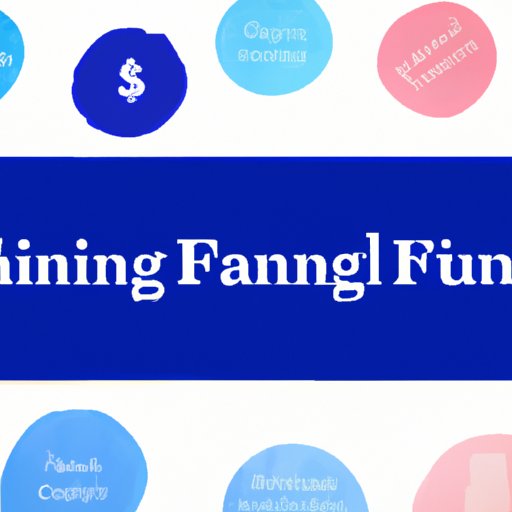Introduction
Financial education is the process of learning about money management and the different ways in which you can save, invest, and grow your wealth. With the right knowledge, you can become financially literate and make sound decisions regarding your finances. Unfortunately, many people lack the necessary skills to properly manage their money, resulting in poor financial decisions and an inability to reach their goals.
The good news is that there are numerous ways to get financial education and become a savvy investor. In this guide, we’ll explore the different avenues you can take to get the knowledge you need to make smart financial moves.
Attend a Financial Literacy Course
One of the best ways to gain financial literacy is to attend a course. There are several types of courses available, from basic personal finance classes to more advanced investment strategies. Taking a class can provide you with the knowledge and skills you need to make better financial decisions. Plus, you’ll have the opportunity to ask questions and get feedback from the instructor, making it easier to understand complex concepts.
There are a few different ways to find and sign up for a financial literacy course. Many colleges and universities offer classes on personal finance and investing, so check with your local school to see what’s available. Additionally, there are often courses offered through community centers and adult education programs. You can also look online for courses that are available in your area.
Research Online Resources
The internet is a great resource for gaining financial knowledge. There are numerous websites, blogs, and podcasts devoted to providing information about money management and investing. Additionally, many government agencies, such as the Internal Revenue Service (IRS) and the Securities and Exchange Commission (SEC), have websites with valuable information about taxes, investments, and other financial topics. There are also non-profit organizations, such as the National Endowment for Financial Education, that provide free resources to help you learn about personal finance.

Utilize Financial Planners and Advisors
For those who want to get more personalized advice, hiring a financial planner or advisor can be a great option. Financial planners and advisors specialize in helping clients achieve their financial goals by providing advice and guidance on investments, retirement planning, taxes, and other financial topics. When selecting a financial planner or advisor, it’s important to find someone who is experienced and knowledgeable about the specific areas you need help with. Make sure to ask questions about their background and qualifications before you commit to working with them.

Follow Financial Blogs and Podcasts
Another great way to stay informed about financial matters is to follow financial blogs and podcasts. Listening to audio content can be a great way to absorb financial information while multitasking. Plus, many financial bloggers and podcasters provide valuable insights and tips that can be helpful in managing your money. Popular financial blogs and podcasts include The Money Wizard, The Simple Dollar, and The Dave Ramsey Show.

Read Books on Personal Finance
If you prefer reading over listening, then picking up a book on personal finance can be a great way to get financial education. There are countless books available on the subject, covering everything from budgeting to investing. Some popular authors include Robert Kiyosaki, Suze Orman, and David Bach. Reading books on personal finance can help you gain a better understanding of the complexities of money management and investing.
Connect with Other Like-Minded Individuals
Networking with other individuals who are interested in financial education can be a great way to stay up-to-date on the latest trends and developments in the field. Connecting with other like-minded individuals can also give you the opportunity to share ideas and experiences, which can be invaluable when it comes to making sound financial decisions. There are numerous online communities dedicated to personal finance and investing, such as Reddit and Quora, where you can connect with other financial enthusiasts.
Take Advantage of Free Financial Software
Finally, taking advantage of free financial software can be a great way to gain financial literacy. There are numerous types of software available, ranging from budgeting tools to tax calculators. Utilizing financial software can make it easier to track your expenses, create a budget, and plan for the future. Plus, some financial software even offers tutorials and advice to help you make smarter financial decisions.
Conclusion
Getting financial education doesn’t have to be difficult. There are numerous ways to get the knowledge you need to make sound financial decisions, from attending courses to utilizing software. By taking advantage of the resources available, you can become financially literate and start taking steps towards achieving your financial goals.
We hope this guide has provided you with useful information about the various ways to get financial education. Remember, by staying informed and learning about personal finance, you can make smarter decisions with your money and reach your financial goals.
(Note: Is this article not meeting your expectations? Do you have knowledge or insights to share? Unlock new opportunities and expand your reach by joining our authors team. Click Registration to join us and share your expertise with our readers.)
